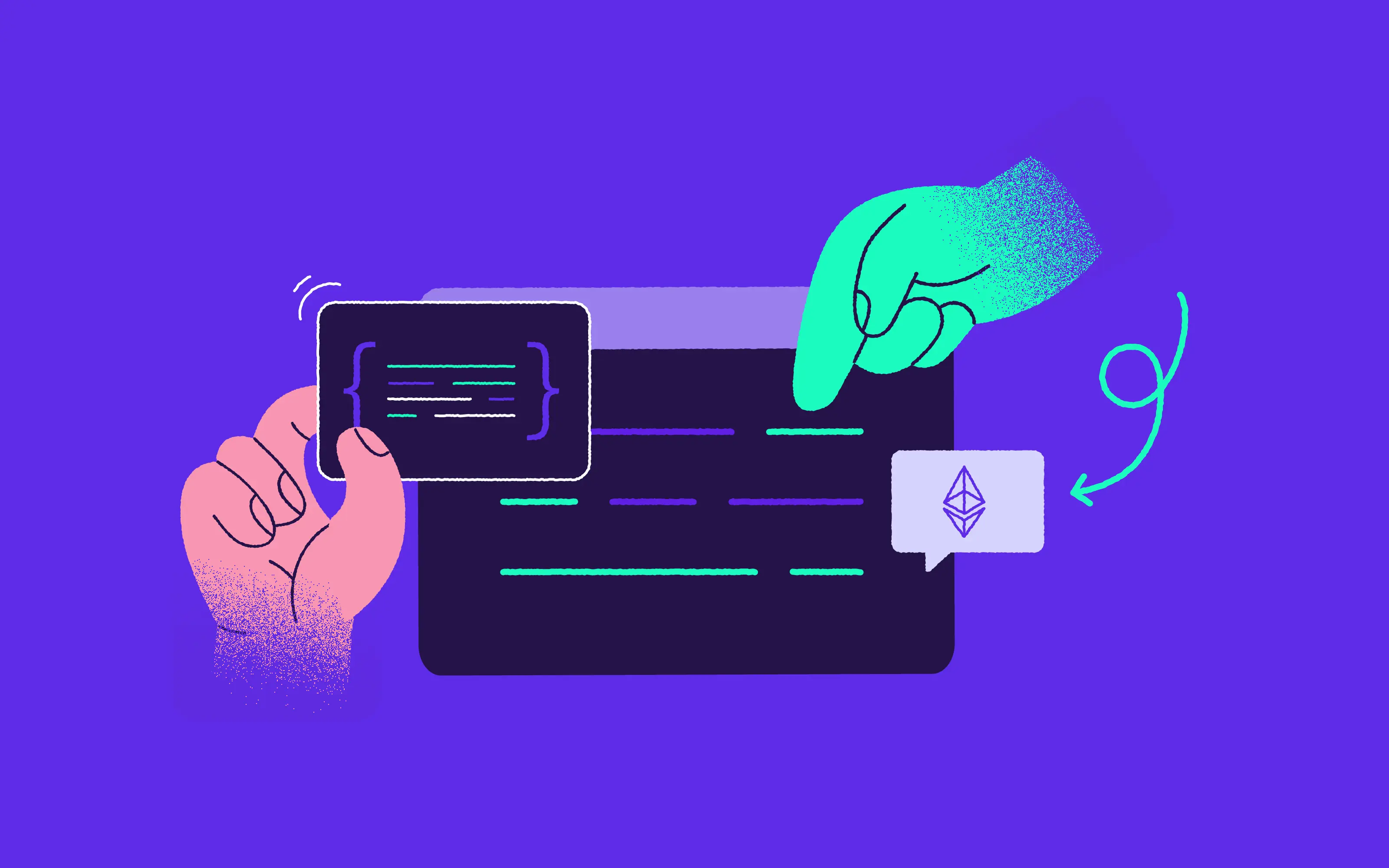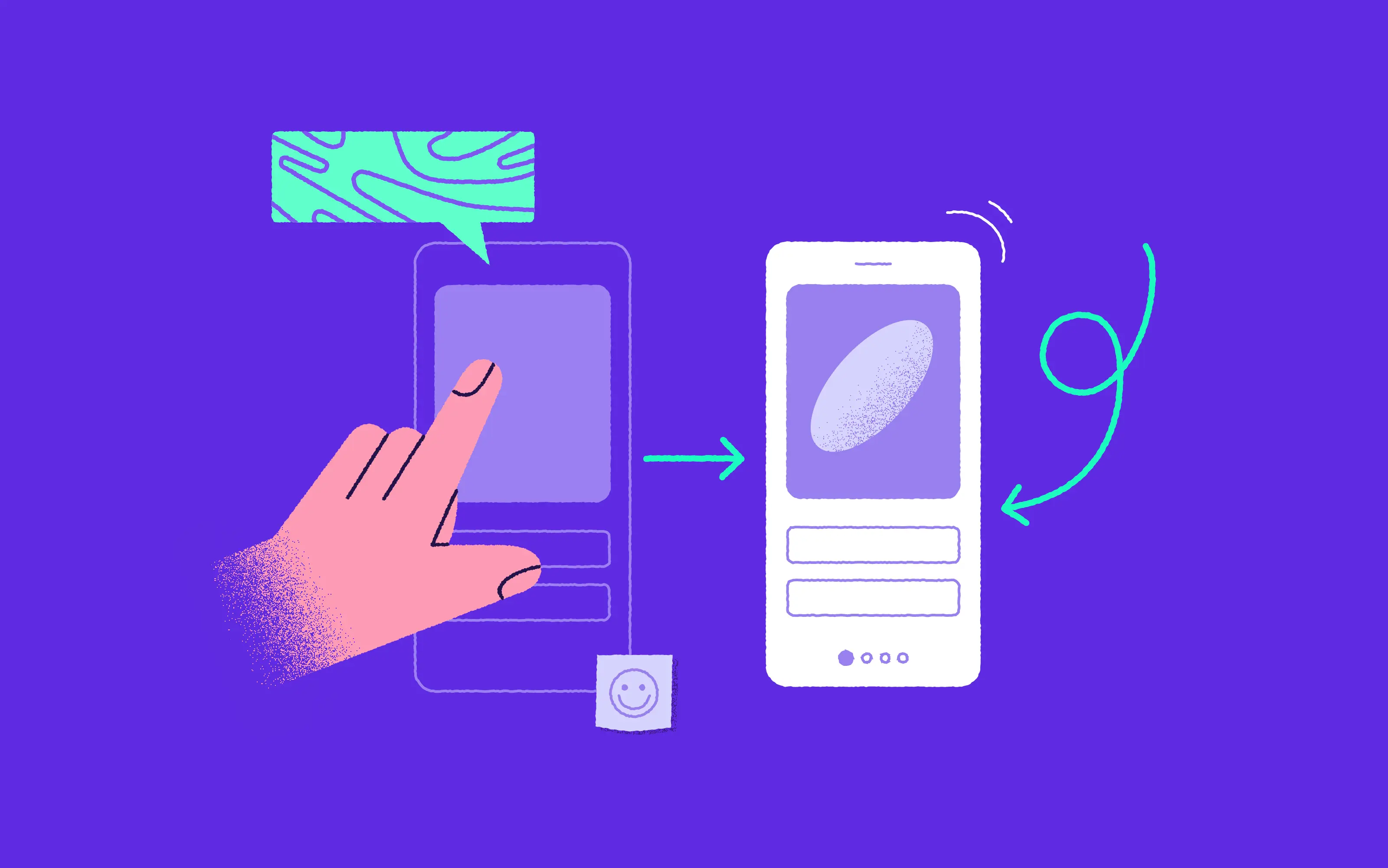DAO: what is it? Learn what a DAO is and why your business needs one
19.01.2023 | 5 min read
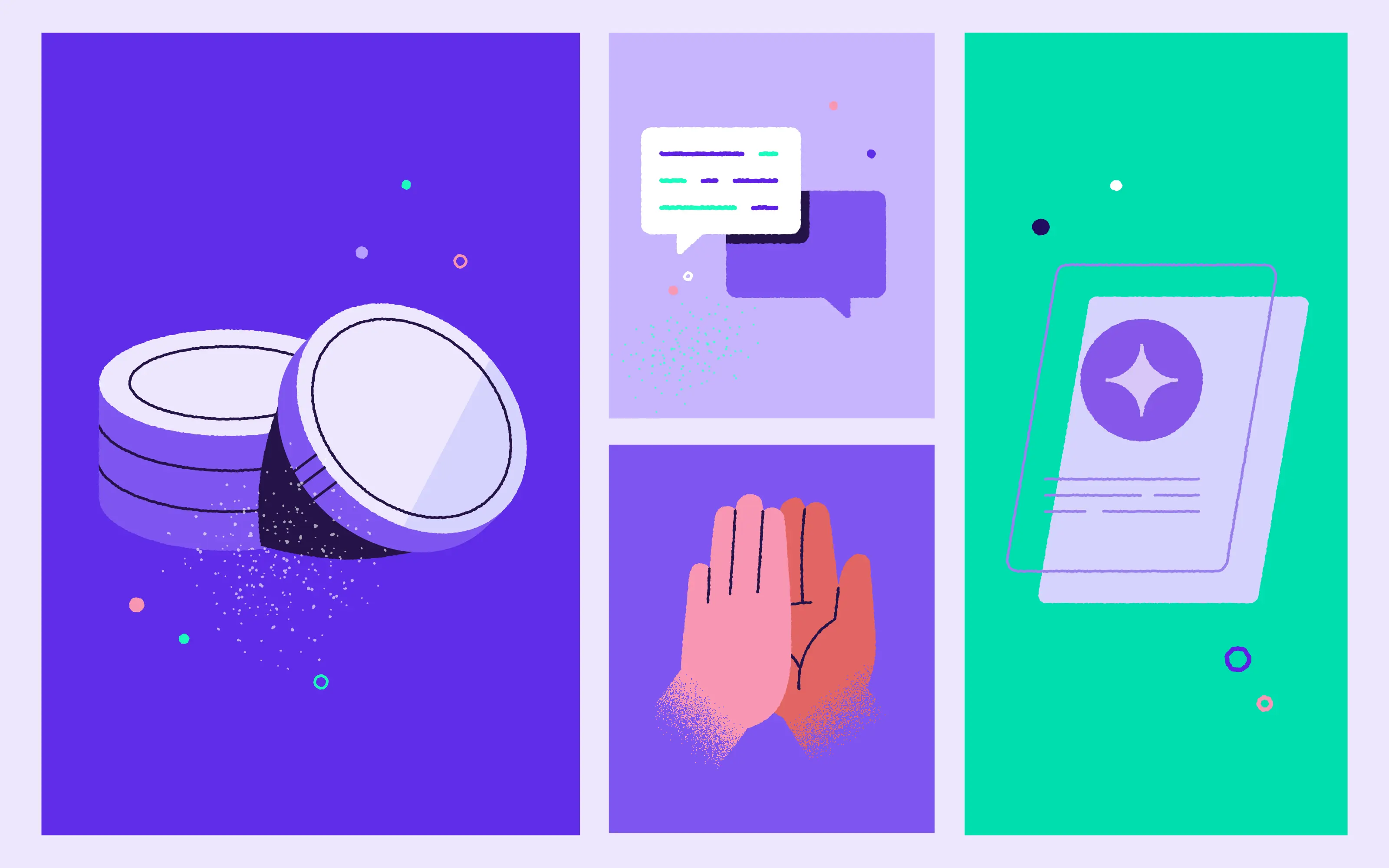
Did you know that the number of DAOs increased 8-fold between 2021 and 2022? Unlike Bitcoin and NFTs, which are often criticized as speculative investments, DAOs are built on the principles of blockchain technology and offer a new way of structuring and running organizations. DAOs allow for decentralized decision-making, transparency, and community ownership, which can disrupt traditional business models and open up new possibilities for how organizations are run.
Before we start it’s worth mentioning that people gathering around a mission or values are what makes a DAO. We associate decentralized autonomous organizations with blockchain but the technology only allows us for better decentralization and voting mechanisms.
Is your company a DAO already?
Let's start with a simple thought experiment. Take a second and think of any company
or organization that you know well. It can be a business you currently work for or a well-known brand. Follow each question and answer "yes" or "no."
- Is the company community-based?
- Is it open to everyone?
- Does it have a strict hierarchy?
- Is the company’s policy clear and open?
- Does the company think globally?
- Can the company afford to hand over the power to consumers?
- Are there any processes that can be automated?
If you answered "no" to most of the questions that mean the company or organization is not a DAO. In that case, what makes a DAO and would you be able to turn your company into one? Let's find out.

Community
Is your company community-based?
As mentioned earlier, communities make DAOs. People involved in decentralized organizations are often driven by a specific mission or values. A DAO can focus on building a dApp, invest in Web3 projects, or raise money for a specific cause.
One of the key aspects of a DAO is a decentralized and democratic decision-making process. Members can propose changes, vote on the proposals and make decisions together. This can lead to the creation of a strong and engaged community around a DAO. Democratization can also lead to communities being more inclusive and having more autonomy and empowerment over the direction an organization is going.
Hierarchy
Does your company have a strict hierarchy?
We can distinguish two types of organizations: centralized and decentralized. In traditional centralized organizations, power concentrates in the hands of a small group of people or a central authority. As already mentioned DAO allows collective decision-making. This eliminates the need for a central body or specific hierarchy.
It is worth mentioning flat hierarchy is the goal but different DAOs can have different governance structures and levels of decentralization.
For example, a DAO can have different levels of membership, with different levels of access to decision-making and control over assets. It could also have different roles and responsibilities for members, including administrators, moderators, or delegates. These roles reflect communities’ needs and may influence smart contracts.
Additionally, DAOs can use reputation-based voting systems, where members' voting power depends on their reputation or contribution to the organization. This ensures that decision-making is more representative of the community so that members with more expertise or experience have more influence in the decision-making process.
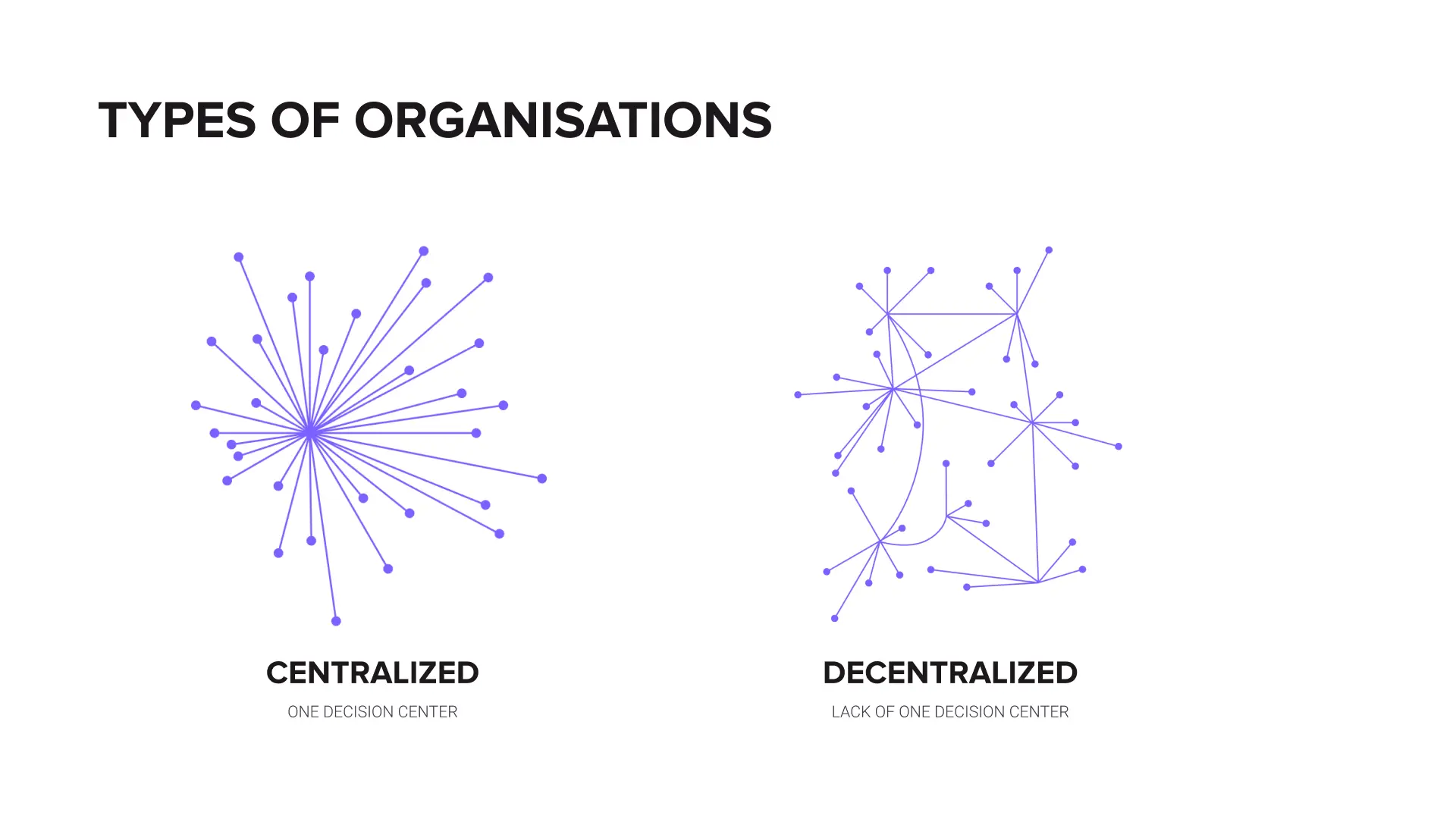
A great example of a company that is not a DAO but introduced a flat hierarchy is the legendary Valve. Based on the company handbook you can see that hierarchy is flat with only Gabe Newell, co-founder of Valve, above everyone else. The most surprising fact is that despite a lack of structure the company has been doing great since its inception in 1996.
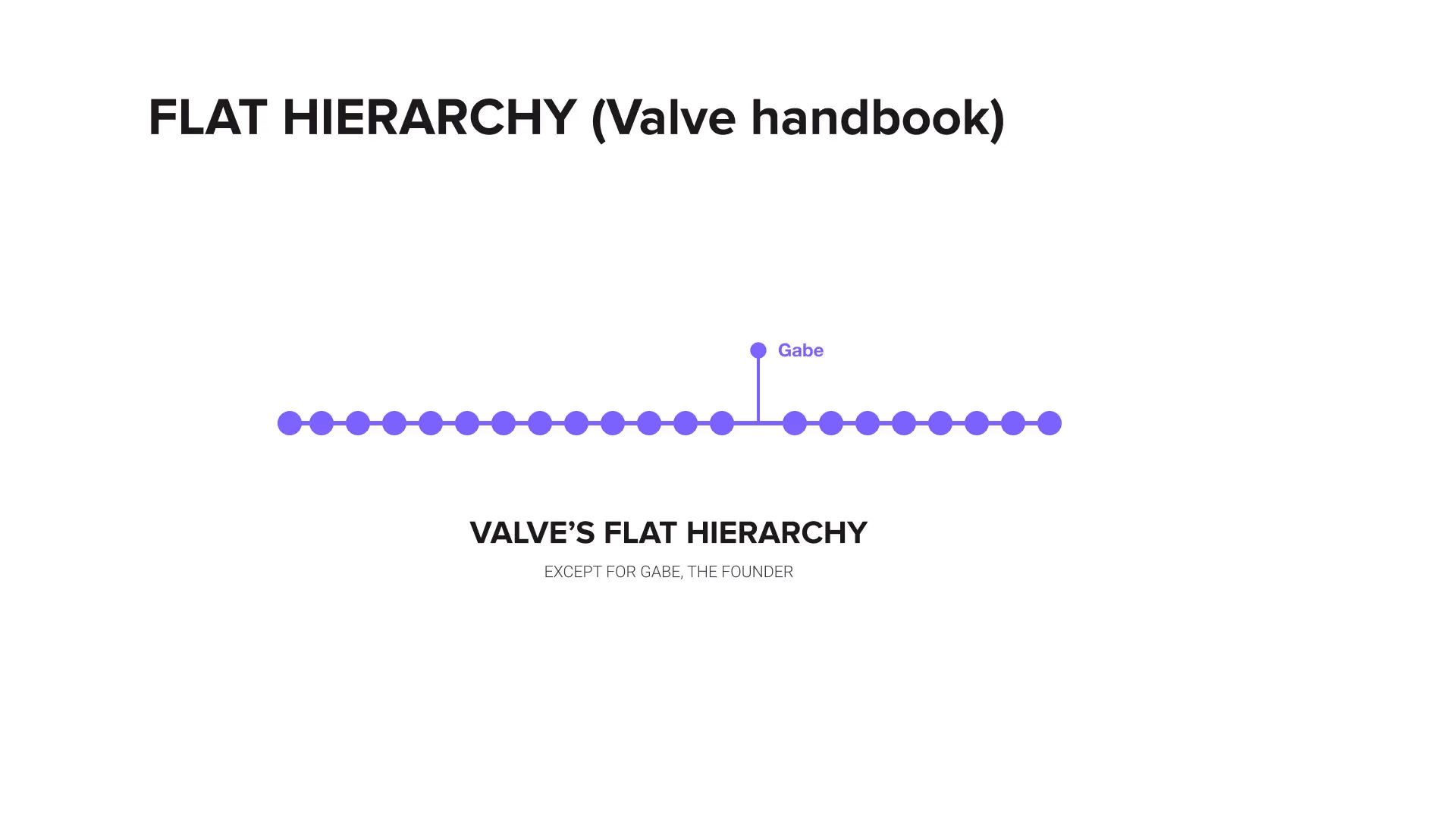
Open
Is it open to everyone?
DAOs are often designed to be open and accessible to everyone, allowing anyone to take part and contribute to an organization. The contribution can come in many forms, including investing in the DAO, working for it, or spreading the word about it. It all depends on members' time, resources and skills available.
How is that different from a regular company? You need to receive an invitation in the form of a job contract to become a member, or in this case, an employee. You can, of course, invest in public companies but very rarely can you influence them in the same way DAOs allow.
There are some cases where limiting access to a DAO may be necessary or beneficial. For example, a DAO that focuses on a sensitive or confidential project may only allow access to a selected group of people. That ensures the security or privacy of a project.
Policy
Is the policy clear and open?
In the context of a DAO, a policy is a set of guidelines that govern the organization's decision-making process and operations. These policies can include rules for membership, decision-making, asset management, and more.
In a DAO, policies are usually included in smart contracts. They allow for the self-execution of contracts with the terms of the agreement written into code. This allows for a transparent and verifiable decision-making process and enables the automation of actions or processes within the organization.
The power of DAO policies lies in them being clear and open to everyone. Unlike in traditional organizations where some of the agendas may be hidden and not available to their members.
Global thinking
Does your company think globally?
The biggest DAOs consider and address issues and opportunities that are relevant to a global audience and on a global scale. On that note, some DAOs focus on specific locations rather than the whole world. Ukraine DAO helps the war-torn country to raise funds. Big Green DAO works with small communities in the USA. Constitution DAO aimed at purchasing a copy of the American constitution.
Power to the people
Can the company afford to hand over power to consumers?
DAOs give power to consumers by allowing them to take part in the decision-making process and take control of the organizations that serve them.
In traditional organizations, power is often concentrated in the hands of a small group of individuals or a central authority. DAOs, on the other hand, operate on a decentralized and democratic decision-making process, where members can vote on proposals and make decisions. This allows for a more inclusive and representative community and can give power to consumers by allowing them to have a say in the direction and operations of the organization.
The few ways in which a DAO can hand over power to consumers include community ownership, token-based voting, and reputation-based voting.
DAOs are not a revolutionary business model but they bring fresh air into space. I hope this short article and exercise helped you answer the question of whether you are ready to start a decentralized organization. In part 2 we will plan a DAO from scratch and have a look at the best tools to help you with the task.

